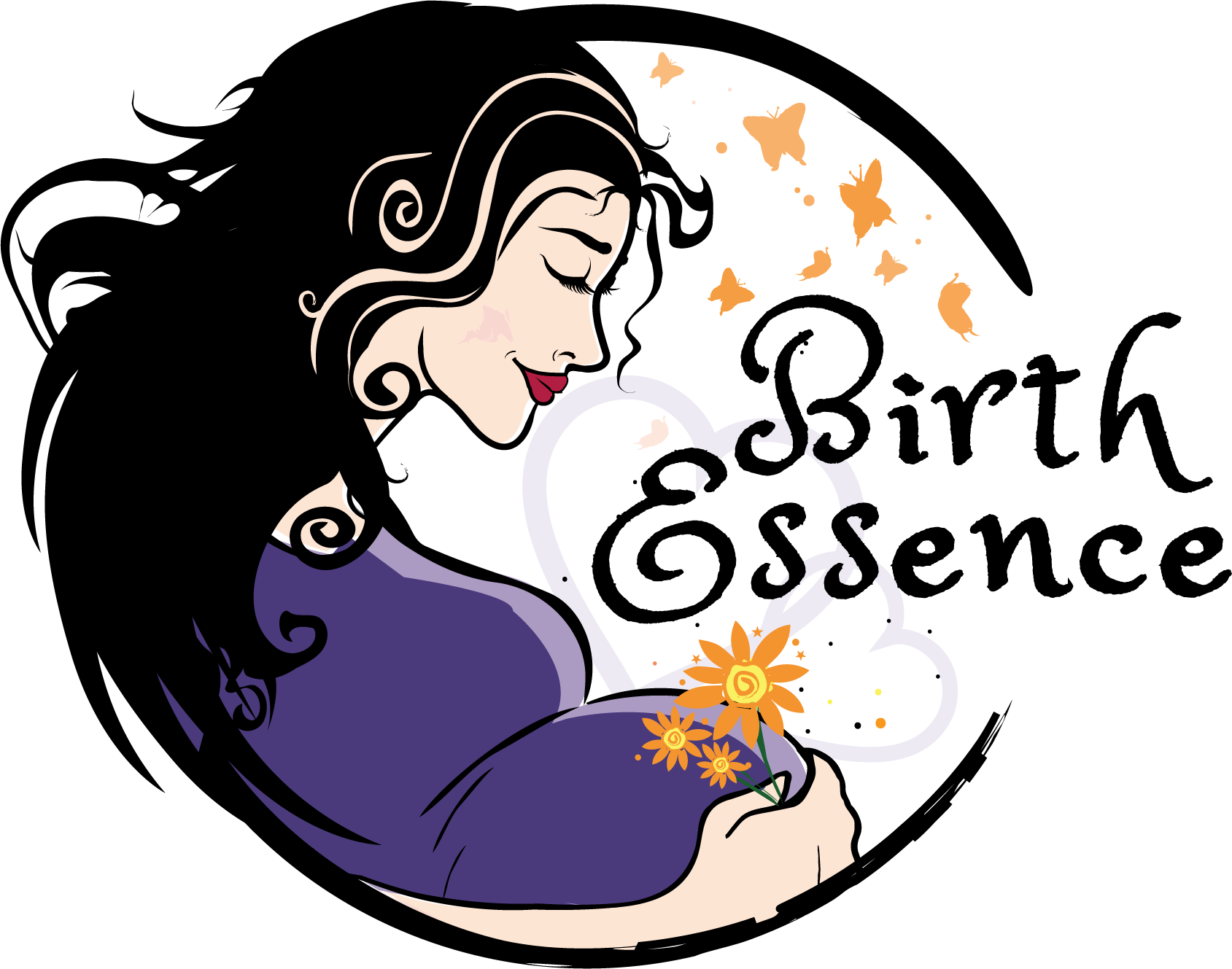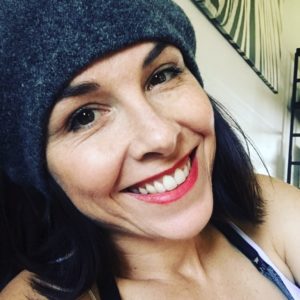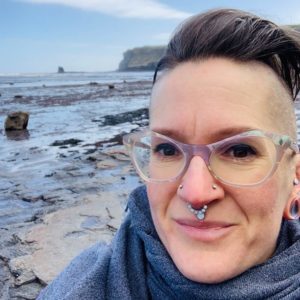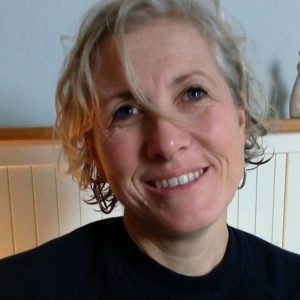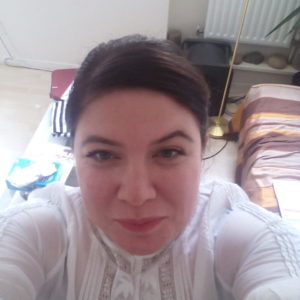Q1. How did your passion for birth begin and what called you to become a midwife?
I was brought up by a very strident second wave feminist, a young single parent, which was not a very easy thing to be in Thatcher's Britain. Social inequality was something that I experienced and observed and I went to University to study Anthropology - essentially the philosophy of people as I have always seen it. During my first undergraduate I became very interested in the anthropology of birth; both different customs and practices but also the social, political and feminist context of birth. I decided to retrain as a midwife because I thought at the time that birth was the last great battle of feminism. It is not. It is the first, and we are still fighting it. Birth is either the cradle of female power, the point of departure when we believe in ourselves and our bodies in a way not constrainable by the patriarchy. Or it is the crucible of woman's oppression - a seminal, powerful and creative moment of our lives denied us as control is stripped away and our own instincts are erased from the conversation. It became my passion to divert the course of the river towards the former, not the latter, though I still have reservations that I have much impact as a researcher in this, despite the feminist underpinnings of my work. We've just founded a Maternity Cooperative based on loosely anarchist and very definite feminist principles in Sheffield. Watch this space, for that one.
Q2. You spent some time in Malawi volunteering as a midwife. What did you learn
from experiencing birth in a different culture? What are some of the highlights of your
international work?
Mostly what I learnt from my time as a midwife in Malawi (I wasn't technically a volunteer, I worked for the governmental NHS like most midwives in Malawi, they just didn't pay me 😉 was that there is no corner of the world in which the colonialist patriarchy has not brutally inserted itself. That said, I was mainly in a University Hospital in the largest city in Malawi, so most of my experiences were in a highly interventionist ward, dictated by colonial intervention in the health system. Maybe things are different in more rural locations - although the maternal mortality in Malawi is high regardless of location of birth so there must still be certain issues. Personally, I loved Malawi (there is a blog about my more general experiences at www.phoebepallotti.com - scroll down to find the Malawi bits) it is a stunning country and I lived in a very gentle community there - coming home was rather jangling to the nerves, thereafter. But my experiences of birth there are always going to be coloured by my work as an international researcher in maternity - I could go on at length about models of delays in care, about the obstetric threshold (whereby women in half the world die for lack of treatment and the other half from over treatment) if this is of interest to you? Women generally at the unit were not heard, their experiences were erased and human rights were thin on the ground - very much like my experiences in the UK in fact. There were some issues with stock outs and particularly for kit in maintaining asepsis (sterility) but generally my colleagues were highly experienced and very skilled. I learnt a lot from them all. One of the biggest challenges was in responding appropriately to a different extended care situation - by this I mean, as an example, saving a baby born in poor condition at all costs is something we would do without thinking here. In Malawi, where ongoing paediatric care is minimal, different axes of decision making need to be applied. This speaks to the wider discourse of modern medical colonialism - effective treatment and strategies need to be developed and led by people who really understand the situation, which is mostly but not always, local women and Malawian staff. Madonna, in penance for her unpopularity due to her rather strong handed adoption of a Malawian boy, gifted an MRI machine to my hospital. Unfortunately, the nearest supply of liquid helium to run the damn thing is 2000 miles away with no appropriate transport mechanism. So really it's just a very expensive bed taking up otherwise useful space. That.
Q3. Your research focuses on global women’s health and safe mother hood
initiatives and you also campaign for safe and dignified maternity care of women
seeking asylum in the UK. What particular issues do you see for women in
marginalised groups that need to be addressed for these women to be confident
giving birth and to have positive experiences?
They are two particularly different issues to me - global women's health demands that we have a representation, a voice, a power within both the strategic planning of maternity services world wide, in maternity research, in local care provision and when we step onto the labour ward. Currently, in my opinion, we are still fighting to be present at all of these levels. For example, a recent bid for some training funds I put in came back with the comment that 'there was no evidence that midwives were capable of doing a PhD'. Where do you even start with that. Each level effects the other and due to the intersectional nature of inequality, women of colour are even less likely to be visible in all of these spheres, as well as women with disabilities, women who's families, gender identities and sexualities do not match up to the expected heteronormative constructs. All we are doing, from researchers, to Birthrights, to Maternity Action and the White Ribbon Alliance, as well as the fierce radical midwives in practice and the women campaigning and bravely sharing their own experiences - this all makes a difference and on we must go.
Women in the UK Immigration system however, have all of the issues above but a particular set of barriers and vulnerabilities set by the way the Home Office treats asylum seekers and refugees. What shocked me most when I began to work for Medical Justice, was not that the Home Office was systemically racist, I knew that already from the experiences of people I love, over the years. What shocked me was just how incompetent they were. Papers were lost, erroneous information was frequently recorded and many of the consultations I reviewed to write medico-legal reports would have seen the nurse or doctor sacked, had they worked for the NHS. I can't be more specific about this without the patients permission but I can tell you stories off the record if you want. Preferably with wine. Mostly, access is an issue, from being dispersed and not knowing how or where to access care, lack of continuity, to language barriers, feeling afraid of being charged for care (often because they are told, often wrongly, that they will be), fear of being deported because the clinician will report them to the home office if their documentation isn't in order (which happens). This is a very specific inequality, entirely created by a racist and misogynistic system. We did, in the end, win the battle to stop the Home Office indefinitely detaining pregnant women in immigration detention prisons, but it was only a first step, there is still so much to be done here.
Q4. What is your vision for the future of birth and motherhood? And what do we
need to do collectively to get there?
My vision is that women and parents will have control over the maternity services they receive in a meaningful way, with human rights being the alpha and omega of care planning and provision. One of my current 'rambles in the key of anarchism' is that I think an industrialised health service, like the NHS, is not fundamentally capable of providing genuinely 'patient centred' care. I love the NHS, I fight for it and value it. As a Dr in Public Health, I know that the NHS is the only thing ameliorating our terrible health outcomes, given the extremely high level of social inequality in the UK - much worse than most other European countries. But I don't think the system, as it currently stands, works well for maternity and birth. So, for example, it is really important to know that the quality of heart surgery you will get in London is roughly the same as the quality in Glasgow - it's unfair and unsafe otherwise. It's really important to concentrate expertise for rare conditions so that clinicians are well experienced and the services are efficient (my daughter had heart surgery in the Freeman, Newcastle, one of only half a dozen paediatric cardiac centres in England. They were beyond amazing and we are so, so grateful). It's also really important to make sure that primary care (GPs) are available and of a good standard in every area (though I'm with Marmot on the fact that they are often not - there are inequalities in care provision, but that is entirely another discussion).
Thus, a standardised, scalable and universal set of health procedures and supplies must be in place for the 60 million or so people in the UK - this is industrialisation. The point is, pregnancy is not an illness - it does not belong to the world of medicine but to the world of family, community, wise elders and the children who will be siblings. Of course women can experience illness in pregnancy, of course there are some risks attached to birth, as there are in many life events, but it is not fundamentally a disease. With the forced cooption of birth into the medical profession (13 million midwives burnt as witches in Europe, left a nice space for the surgeons to step into) and the modernist turn to the industrialisation of all medicine birth has been treated as an illness for a good few centuries and with the push for unit births in the 60s and 70s, now an almost entirely institutionalised one. This has left us with a care system which has been hollowed out of relational support and also care over which women have little control. I loved Better Births (2016), we all did, but a lot of the implementation of a drive towards continuity of care has replaced an intuitive understanding of the real benefit of relational care. This benefit is that a midwife who knows you, cares about you will help you feel safe, will detect any changes that are significant to you, will protect you from the things you don't want because they know you don't want them. Instead what we seem to have is the dismantling of a lot of established community teams to ensure the target that you will be seen in labour by a midwife you have met once is achieved. The drive for 'personalised' care seems really, from a very cynical perspective, to mean considering more data points about you in order to feed you into a more particular part of the machine. We organise inductions of labour in response to staffing, we restrict choices of location of birth because of service needs. What you want really is what you are allowed to have in this system.
So what do we need? We need to reclaim birth as a community, local, grass roots, unscalable (but by sharing practice openly, replicable) care which is right for those women, those parents, those midwives (because we are people, mothers, lovers too) and other birth workers. We need cooperatives and other community organisations, run equally by families and birth workers local action groups, our own space to make our own decisions and share our own skills. Of course we need more respect, more family friendly facilities and more oversight on consent in birth. But really what we need is the power back.
Q5. What would you suggest as a starting point for a woman who is currently
terrified of birth for a multitude of reasons and can’t imagine she will ever feel
confident, that this is a dream for others and not for her?
Find a doula, find an advocate, find a witch, get some back up in because, and I know this from my personal experience giving birth - you cannot fight this alone when you're already in lithotomy (both metaphorical and literal). No one can. We need to stand together at the cradle, not just at the parliament. We are not alone, one of the greatest myths of the patriarchy is that we are.
Q6. In what ways do you see women’s confidence getting undermined and what do
you see as the solution or support for that?
I can't really answer this question in isolation as it's not her 'confidence' which is knocked by the institutionalised, patriarchal system (as above, ad nauseum) but her fundamental belief in her own instincts, in her own body and therefore in her own power as a mother - fathers/other parents also suffer this almost just as acutely. As above, she/they need to understand that the power is theirs and to do that, they need good advocacy, support and love from the outset. Find your team, find your community.
Q7. Do you have any final thoughts or insight that you would love every woman
listening to this interview to take forwards into her life and journey as a mother?
Whatever your birth, whatever your body, whatever you need - believe that your voice should and will be heard.
Time Stamps for Video Interview
Phoebe's interest developed through an lens of feminism and a degree in anthropology. SHe shares a transformational story of a woman who had a very standard birth in hospital but due to achieving what she wanted and feeling in control was very happy.
4.54 First time mothers need a team, a tribe, and partners need support too.
7.00 Everyone needs a witch. Witches were just midwives throughout history, The bad rap is exactly the battle. If we stand up for ourselves we are being subversive and evil not reasonable and confident
Patriarchial system not men we are all part of the system and this is the problem.
Woman bossy and man seen as confident. Pejorative discourse
8.30 Being talked over during a consultant appointment where all questions were addressed to her husband.
12.02 With very few exceptions in small pockets, there isn’t a corner of the world in which medical colonisation has not invaded the space. The concept of the white saviour is troubling and the example of Madonna's gift to the teaching hospital she worked in.
Intersectionality and different levels of power. In some cases even the right to be unseen has been eroded and birth by its nature is hidden.
17.00 The objective of having more medical attendants is good in terms of mortality what are we missing? How much trauma is happening?
Making people feel alone and isolating them is a classic symptom of an oppressive regime making a team even more important.
19.50 Believe that you should be listened to and if you are not that is not your fault. Your opinion intuition and feelings are the important thing, the core of safe birth not the nice fluffy bits on the side.
The problems of industrialisation of care in maternity and the limitations so far of the Better Birth Study.
Refuse to accept system issues as your personal problem.
24.50 Get good evidence - Aims, RCOG, BirthRights.
You have the right to say no.
27.50 How we are conditioned since birth with tiny micro aggressions that favour the man and make it difficult to speak up in birth.
Women are tired and also increasingly angry
The telling use of the word decline when it is really a choice. Women need control over what is happening and should not be put in defensive positions.
36.10 The burden of proof in maternity care rests on you proving the alternative is safe. which is wrong and often ignoring the evidence base. Scientific discourse is seen as proof and women as witchy and not true but the science is not necessarily evidence based. The real truth is it is who has the power.
41.00 Work through peoples assumptions. If she feels it’s a valid reason, it’s a valid reason.
Whatever your birth whatever your body whatever you need. Believe that your voice should and would be heard
Need people with megaphone to help your voice be heard but it should be heard. We need voice and need the power back. I am not asking for too, much just everything.

